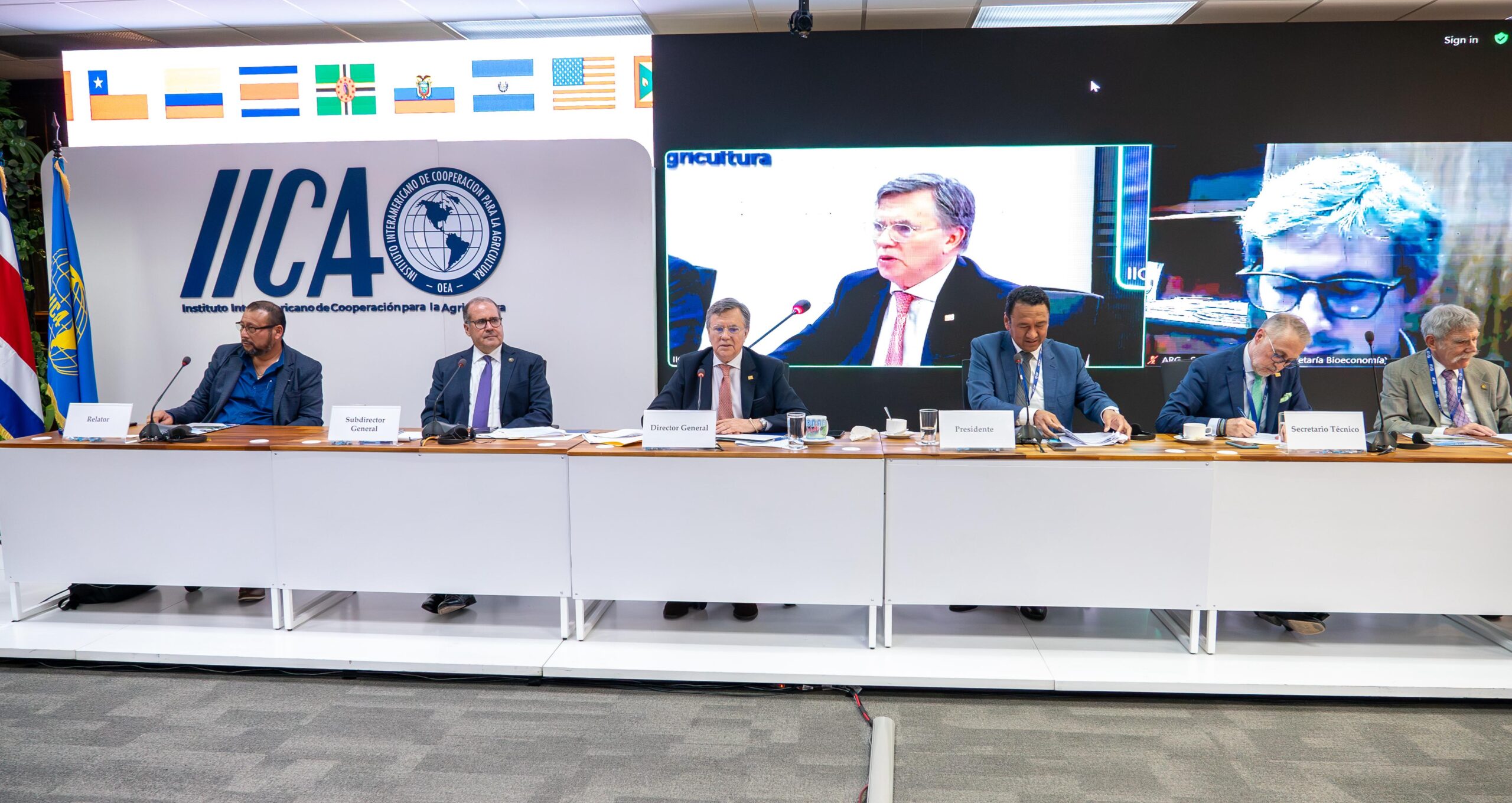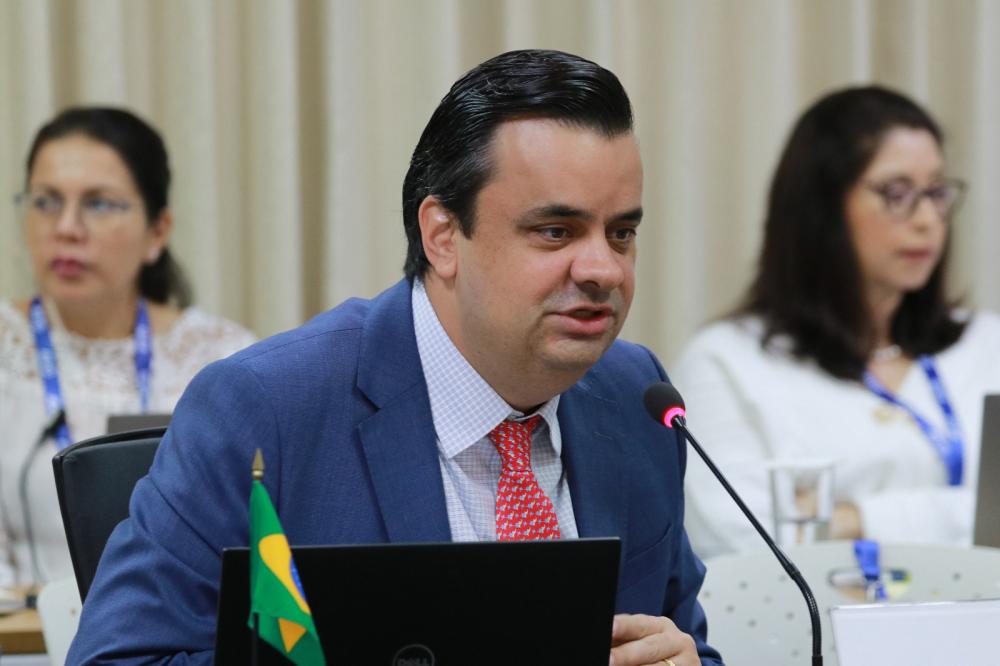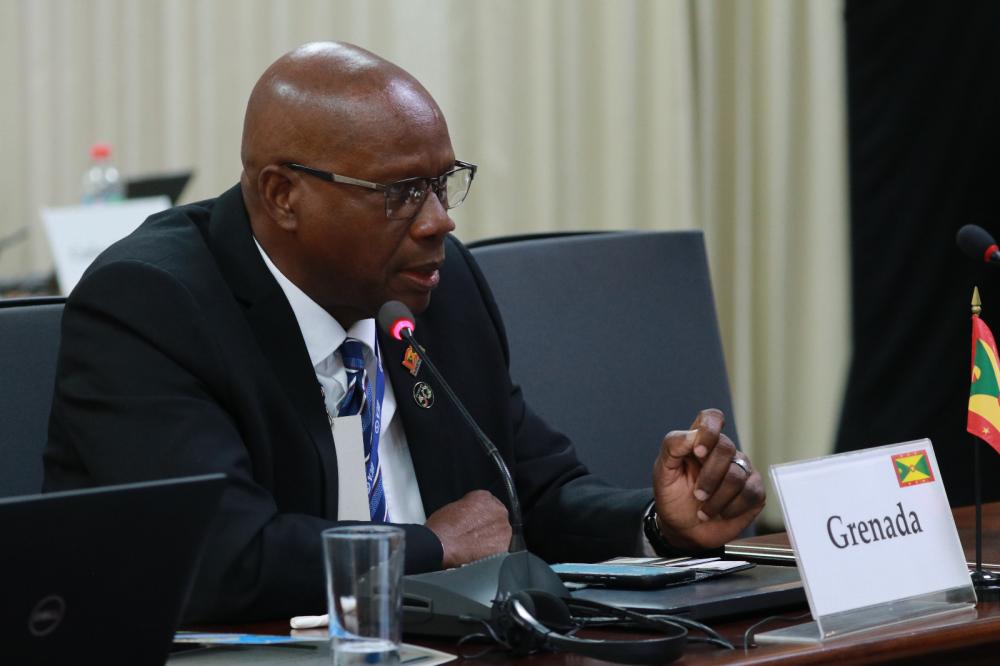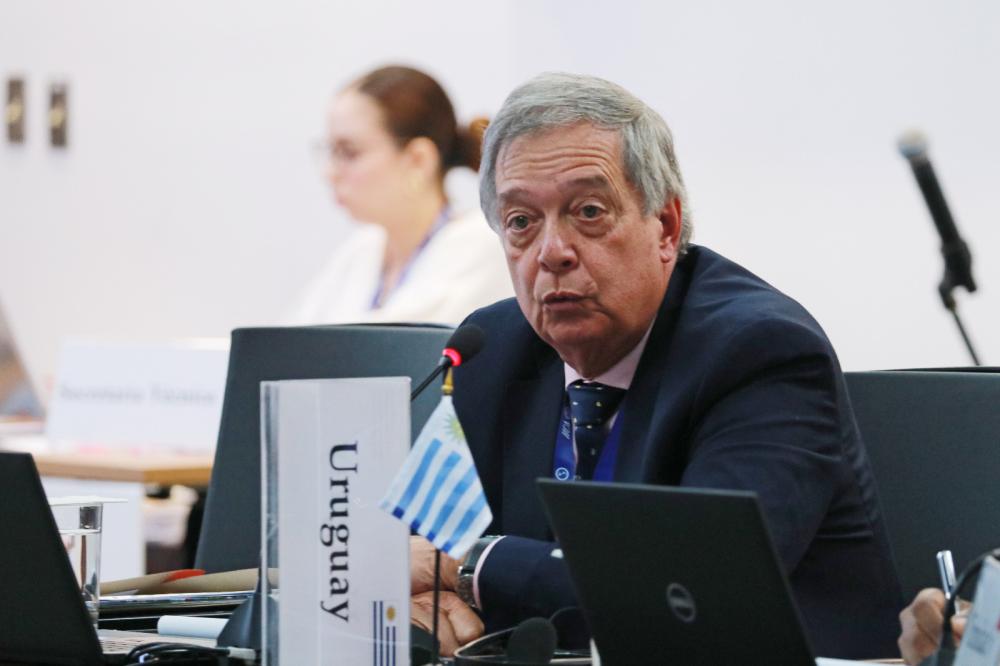The Fund is aimed at improving the resilience of agri-food systems, supporting sustainable agricultural innovations, and optimizing the planning and execution processes of programs and projects, primarily in lower-income countries in the region.

San José, 26 July 2024 (IICA). – The Inter-American Institute for Cooperation on Agriculture (IICA) has launched a proposal to create the Hemispheric Fund for Agricultural Resilience and Sustainability in the Americas. This initiative aims to provide financial and technical support to countries in the region to develop and implement strategies that strengthen the resilience and sustainability of their agricultural systems, which are increasingly affected by extreme climate-related events.
The launch, which received significant approval from ministers, took place at the 44th regular meeting of its Executive Committee, the Institute’s governing body where the most important issues regarding the future of agri-food systems are discussed. The meeting was attended by agriculture ministers from the Americas and other senior officials from the sector.
This financial instrument, which will be operated by IICA, aims to mobilize, manage, and execute new economic resources to improve the institutional, technical, and administrative capacities necessary to execute programs and projects that strengthen the resilience and adaptive capacity of agricultural systems in the countries of the Americas. It will also serve as a bridge to urgently address high-impact phenomena such as health and environmental emergencies.
Additionally, it includes a special commitment to countries with lower economic capacity, promoting more equitable and inclusive development.
“Only with resources, political will, and an adequate strategy will we be able to catalyze change, emerge stronger, and address the climate vulnerability faced by our countries with improved capacity and new high-impact cooperation initiatives. This fund is a promise of a better future for agriculture in the Americas, with investment in resilience and sustainability,” stated the Director General of IICA, Manuel Otero.

“The Caribbean is one of the most vulnerable regions on the planet to this situation of climate change. There is also the delicate situation of Central America and other phenomena occurring outside these regions. This cannot be the work of a single international organization; it must be a collective effort, and this fund will be transparent and without bureaucracy,” he added.
The creation of this financial mechanism received strong support from the agriculture ministers of the Americas and other senior sector officials present at the meeting. It also responds to an express mandate from the Inter-American Board of Agriculture (IABA) of IICA, the Institute’s highest governing body, which last October also supported the proposal to build the Hemispheric Partnership for Food Security and Sustainable Development, within which the fund initiative is framed.
“Brazil will make a donation to increase this fund in order to add value, improve the production environment, trade, and integration between countries. Brazil has faced drought problems in the northeast, and severe flooding has affected the south of the country, in Rio Grande do Sul. We know what these extreme events are like,” indicated Roberto Perosa, Secretary of Commerce and International Relations of the Ministry of Agriculture and Livestock of Brazil.
“We must thank IICA for the leadership in resilience and sustainable agricultural practices for the transformation of food systems and the fund’s objective to improve resilience and support innovations focused on climate resilience. We hope to continue supporting the fund in the present and future in order to make a contribution to biotechnology, trade, climate, and food insecurity in the region. We must support our brother countries,” added Donald Willar, Trade Policy Advisor for Multilateral Affairs of the Foreign Agricultural Service of the United States Department of Agriculture.

Fernando Mattos, Minister of Livestock, Agriculture, and Fisheries of Uruguay, also praised the creation of the fund and announced that at the Southern Agricultural Council (CAS), which will meet next week in Buenos Aires, they will discuss “the issue of climate change and how to collaborate and contribute to the funding of an emergency or disaster fund.”
“In the southern part of the hemisphere we also have climate problems, including very prolonged droughts that are immediately interrupted by a period of floods. Contributing with immediate assistance funds for countries in critical situations is key, and as a region, we must convey a very united, firm message demanding the developed world to contribute and provide compensation for the climate effects that their productive actions generate, severely affecting our economies,” he said.
Grenada’s minister, Lennox Andrews, commented that the resilience fund “is an excellent step in the right direction,” to which they hope to have “quick and easy access to start the process of rehabilitation and reconstruction of the agricultural sector.” The Caribbean region is highly vulnerable to extreme weather events such as hurricanes, floods, and droughts, constantly facing significant challenges in terms of food security, economic development, and social well-being.
“We must congratulate IICA for helping to address the challenges of climate change and extreme events in the region. We know that the resources will be well managed; we know that other agencies and donors will participate in this well-structured fund,” mentioned Nigel Grimes, Technical Advisor of the Ministry of Agriculture, Land, and Fisheries of Trinidad and Tobago.
Rafael Ortiz, Deputy Minister of Scientific and Technological Affairs of the Ministry of Agriculture of the Dominican Republic, stated that the hemispheric fund will be “useful and will have the expected effects,” and also urged consideration of a hemispheric insurance program as a solution for farmers to have greater support and protection against extreme climate-related events that seriously threaten their activities and livelihoods.

The fund is conceived as a multilateral cooperation mechanism to enhance technical, administrative, financial, and strategic capacities and is also designed to improve autonomy in the implementation of public policies and the effectiveness of investments in agri-food systems, both nationally and multinationally.
It will be supported by multiple financial sources, thus ensuring a solid and diversified base for its activities. These funding sources include voluntary contributions from Member States, Associates, and Permanent Observers, as well as other international organizations, global, regional, and national funds, investments, donations, and the Institute’s matching funds.
More information:
Institutional Communication Division.
comunicacion.institucional@iica.int











